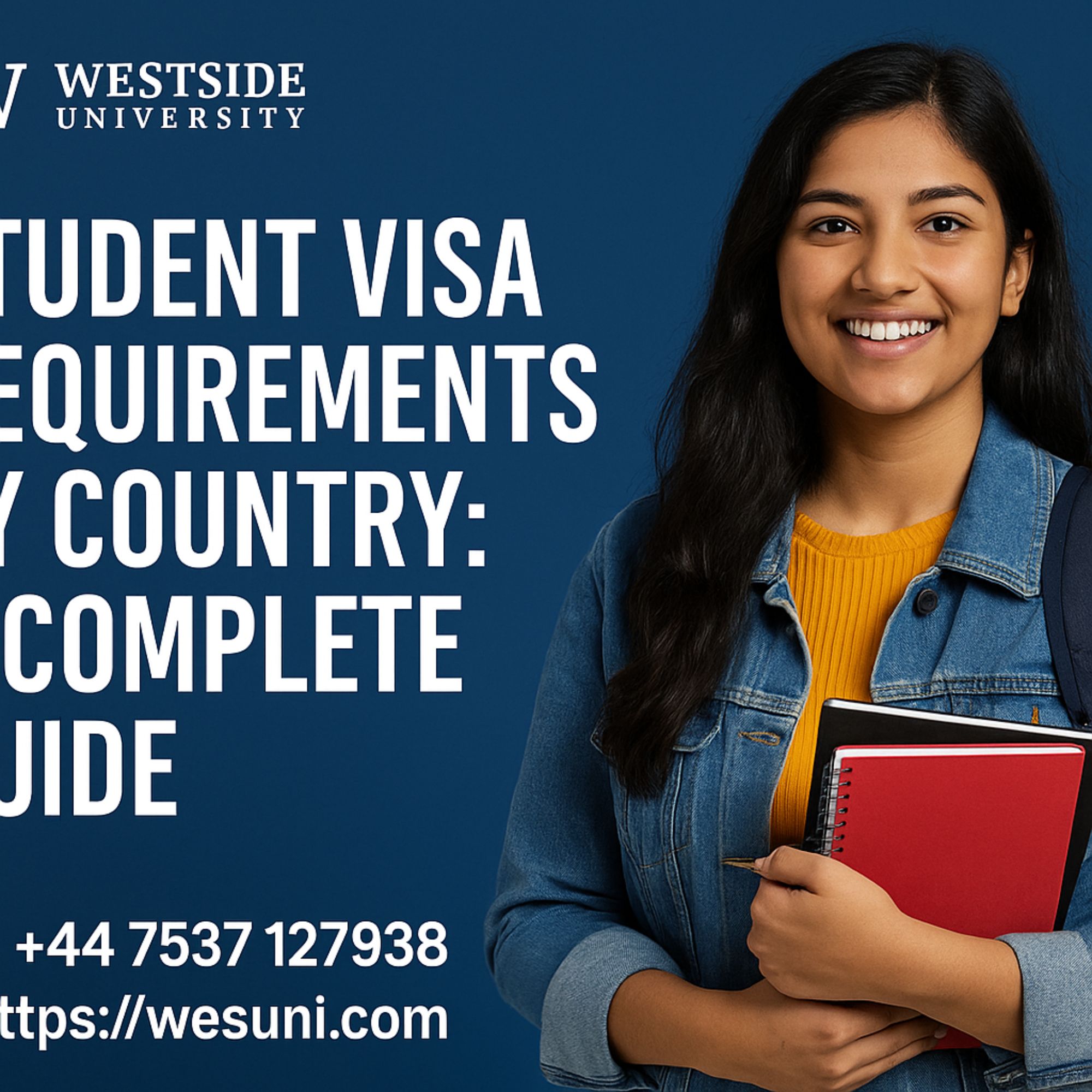Studying abroad is one of the most exciting decisions a student can make. From world-class education to cultural exposure, the benefits are endless. But before you can board your flight, there’s one hurdle you must clear: the student visa.
Every country has its own visa policies, timelines, and requirements, which can feel overwhelming if you don’t know where to start. This guide will walk you through the student visa requirements by country, offering clarity so you can focus on your study abroad dream.
🌍 Why Student Visas Matter
A student visa is more than a piece of paper—it’s your permission to live and study legally in another country. Without it, you cannot enroll in your university, work part-time, or even open a bank account in many destinations.
Common benefits of student visas:
- Legal permission to stay during your course duration
- Authorization for part-time work (in many countries)
- Pathways to residency or longer work visas after graduation
👉 Planning ahead ensures no last-minute surprises and increases your chances of approval.
✅ General Student Visa Requirements
While every country is different, most student visa applications require:
- Valid passport (with at least 6 months validity beyond your course duration)
- Acceptance letter from a recognized university
- Proof of financial stability (bank statements, sponsor letters, or scholarship awards)
- Language proficiency (IELTS/TOEFL for English-speaking countries; others may require language tests)
- Passport-sized photos
- Visa application form (completed online or at the embassy)
- Visa application fee (varies by country)
- Medical checkups or insurance proof (depending on destination)
🌎 Student Visa Requirements by Country
🇺🇸 United States (F-1 Visa)
- Apply for the F-1 Visa after receiving the I-20 form from your university.
- Must prove you can pay tuition + living costs.
- SEVIS Fee + Visa Fee required.
- Interview at the U.S. embassy is mandatory.
- Part-time work allowed: 20 hours/week during term, full-time during breaks.
👉 Processing time: 3–5 months (apply early!).
🇬🇧 United Kingdom (Student Visa)
- Acceptance letter from a licensed sponsor university.
- Proof of funds: at least £1,334/month if studying in London; £1,023/month outside.
- Must pay the Immigration Health Surcharge (IHS) for medical access.
- English proficiency (IELTS, TOEFL, or equivalent).
- Work rights: 20 hours/week during term, full-time during holidays.
👉 Visa usually valid for the course length + 4 months.
🇨🇦 Canada (Study Permit)
- Acceptance letter from a Designated Learning Institution (DLI).
- Proof of funds: CAD $10,000/year (outside Quebec).
- Language test: IELTS Academic often required.
- Medical exam + police certificate in some cases.
- Part-time work: 20 hours/week (recently increased to 24 in certain cases).
👉 Apply at least 4–6 months before classes begin.
🇦🇺 Australia (Subclass 500 Visa)
- Proof of enrollment (Confirmation of Enrolment – CoE).
- Funds: AUD $24,505/year (living cost).
- English requirement: IELTS, TOEFL, or PTE.
- Overseas Student Health Cover (OSHC) is mandatory.
- Work: 48 hours every two weeks during term, unlimited in breaks.
👉 Usually granted for entire course duration.
🇩🇪 Germany (National Visa for Study)
- Acceptance from a German university.
- Proof of funds: €11,208/year (often via a blocked account).
- Proof of health insurance.
- Language requirement: IELTS/TOEFL for English-taught courses, or TestDaF/DSH for German programs.
- Work: 120 full days OR 240 half days per year.
👉 Apply at least 3 months before your course.
🇫🇷 France (Student Visa – VLS-TS)
- University acceptance letter.
- Proof of funds: €615/month.
- Health insurance mandatory.
- Language proficiency in French or English (depending on program).
- Campus France registration often required before visa application.
👉 Work: 964 hours/year (~20 hours/week).
🇳🇱 Netherlands (MVV + Residence Permit)
- Proof of enrollment at a Dutch university.
- Financial proof: €1,000+/month for living expenses.
- Health insurance required.
- Work: Up to 16 hours/week during term or full-time in summer.
👉 University often applies on your behalf.
🇯🇵 Japan (Student Visa)
- Acceptance letter from a Japanese institution.
- Proof of financial resources (tuition + living).
- Certificate of Eligibility (CoE) issued by the school.
- Passport + visa application form.
- Part-time work: 28 hours/week with special permission.
🇰🇷 South Korea (D-2 Visa)
- University acceptance letter.
- Proof of funds: $10,000–$20,000 depending on program.
- Language requirement: TOPIK (for Korean programs) or IELTS/TOEFL (for English programs).
- Work: Part-time work allowed after first semester with approval.
⚡ Tips for a Successful Visa Application
- Apply early – Some countries take months to process applications.
- Double-check documents – Missing forms can delay approval.
- Prepare for interviews – Be ready to explain your study plans.
- Show ties to home country – Many embassies want assurance you’ll return after studies.
- Stay updated – Visa rules change frequently (especially post-pandemic).
🌟 Final Thoughts
Getting your student visa might feel intimidating, but with proper preparation, it’s manageable. Each country has different requirements, but the essentials—acceptance, funds, documents, and language proof—remain consistent.
By understanding what’s needed early and preparing thoroughly, you can avoid delays and start your study abroad journey stress-free.
🚀 Call to Action
Don’t let visa requirements stop your dream! 🌍
👉 Apply now with Westside University
We’ll guide you through admissions, scholarships, visas, and settling abroad.
📞 Contact us today: +44 7537 127938
🌐 Visit: https://wesuni.com


